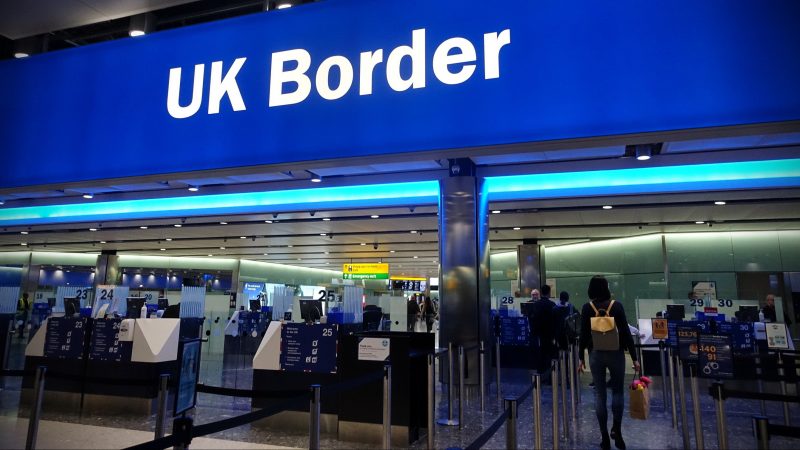
Prime Minister Rishi Sunak has promised to “stop the boats“. His new illegal migration bill would create the new powers that he claims the government needs to make this happen.
There are three different criticisms of why this plan won’t work. The first is that there is not much new in the bill. Strangely, some of the key aims – such as making everyone who arrives without entry clearance an ‘illegal migrant’ – was included in the previous immigration law passed less than a year ago. Notably, that legislation was also said to empower the government to stop the boats. Instead, more small boats crossed the Channel than ever before.
A second criticism is the new bill is unenforceable. This is because it likely breaches international law. The government has acknowledged – on the front page of the legislation – that it is likely it is incompatible with the UK’s legal obligations. This has led some to call the proposals the illegal migration bill.
A third critique claims that the bill is unworkable. There is too narrow a timeframe for migrants to make legal challenges where language and legal advice may be unavailable and the time to act too short. While the government talks about sending all those travelling on small boats to Rwanda, critics argue it is far more likely that those who should be in the asylum system having their claims heard will instead languish in asylum detention for many years to come with nowhere to go.
The government rejects these arguments. Ministers claim that the new laws build on similar powers from last year and that they are convinced that cases might be won if legally challenged and flights will be made removing migrants to Rwanda. The problem is, even if they’re right, these plans won’t stop the boats – and they know it.
There were no small boat crossings recorded until 2018. This was as the government passed the Brexit bill, with talks with the EU avoiding agreement on a returns arrangement. Small boats then became a serious issue after 2020 when the UK left its returns agreement with the EU. It has increased significantly each year since.
As my recent report on small boats showed, Brexit was a significant factor in why this issue emerged. The reasons are straightforward. While the UK was in the EU, anyone travelling ‘irregularly’ could be – and often was – returned to the EU as part of an EU-wide agreement called the Dublin III Regulation. As returns agreements were in place, irregular migration was comparatively low, because there was a high risk of getting caught and being removed.
But when the UK left the EU, we left this agreement. This meant that it became a lot more difficult to return anybody to the EU. The numbers attempting irregular migration skyrocketed as a result. This problem was foreseeable. In 2016 before the EU referendum, I predicted a steep rise in irregular migration and lives put at risk making the journey. Sadly, this prediction has come true.
The key part of reducing small boats is getting a new returns agreement with the EU, as my report makes clear. Everything else is tinkering around the edges. If we want to go back to when these journeys did not happen, we need to have a returns policy as we did then. Anything less will not stop the boats in any substantive way. This fact is acknowledged, in part, by the Home Office. We might expect the department to forecast a big drop in the number of people arriving in small boats, given the government’s plans. Instead, it predicts numbers could rise to more than 80,000 this year, a new record high.
It is clear that the government was completely taken by surprise about the impact of ending its return policy with the EU. Ministers were asked repeatedly (such as here, here, here and here) about what plans or assessment, if any, they had made for leaving without a deal on returning migrants. The simple fact of the matter was that no plan was made, and the risk was never taken seriously – despite repeatedly warnings from Labour.
My solution is now tacitly accepted by the government. While ministers have made much of the bill domestically, diplomatically the story is very different, as Sunak’s charm offensive in France this week showed. One of the top items on his agenda was for a returns agreement with the EU. French President Emmanuel Macron acknowledged the lack of an agreement was a consequence of the government’s rush to “get Brexit done”.
But to move forward, the government has to do something bigger than stump up the funding for any deal. It must admit it got this wrong. Serious questions must be asked about why this issue has emerged nearly a decade into Tory government and on their watch, despite repeated warnings.
The thing to watch as the government seeks to stop small boats is not the progress of its illegal migration bill, but talks on a new returns policy. Whether or not the former happens, it is the latter that would be the game-changer, and the Prime Minister knows this, as demonstrated by his efforts with Macron over the past few days. Unlawful or not, the bill is a big distraction from the key part of these plans. Continued failure on returns isn’t just a policy failure, but will ensure Sunak breaks his pledge.




More from LabourList
Turning the page? Labour’s recovery in the polls show a path to 2029 victory
Restoration announce recommendations for NEC candidates
‘Factionalism at the top is weakening Labour – and handing a gift to Reform’